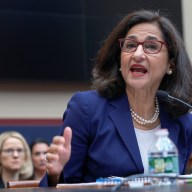First Nations Chiefs will vote for the Assembly of First Nations National Chief in Calgary on July 22.
Did you respond to that information with a “So, who cares?”
If you did, you might want to rethink your reaction. I think it’s safe to say that most of us don’t think too much about our First Nations, Métis and Inuit populations.
We know they exist.
We know they face many social, economic and educational challenges. And we know those challenges belong to them alone.
But that’s exactly the kind of thinking that must change if we are truly going to enable our Aboriginal population to overcome those challenges.
You don’t have to be a bleeding heart liberal to think this way.
If our Aboriginal population doesn’t achieve equality with other segments of the population, it’s not just them who will pay a very steep price.
Their loss will be the rest of Canada’s as well.
A quick look at some basic facts shows the future of our city and province and that of our Aboriginal peoples are closely tied together.
The 2006 census showed that 52,100 people living in the Edmonton area identified themselves as Aboriginal. This is a more than a 27 per cent increase in our native population since the last census.
Aboriginal peoples make up nearly six per cent of Alberta’s population and are the fastest growing segment of our population.
Of even more significance is the fact that 33 per cent of our Aboriginal population is under 15 years old.
These young people will be entering the work force during the next 10 years. If we do not enable them to attain the skills and abilities to find employment and to be contributing members of society, we will all pay the price for failure.
Aboriginals are already over-represented in our courts and in social service programs. Without our commitment to real change, we can expect those numbers to grow.
All this is not to say that our Aboriginal peoples have no work of their own to do.
There are too many instances in which Aboriginal leaders have ignored the needs of their people and have chosen to further their own ends instead. Truly changing the state of things will require strong and effective leadership at all levels within the Aboriginal community.
The Assembly of First Nations election is a good place to start on the path to future success.
















